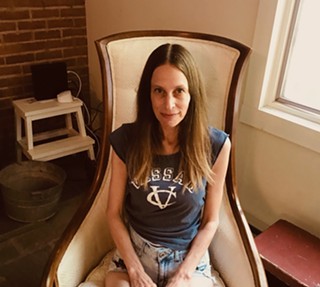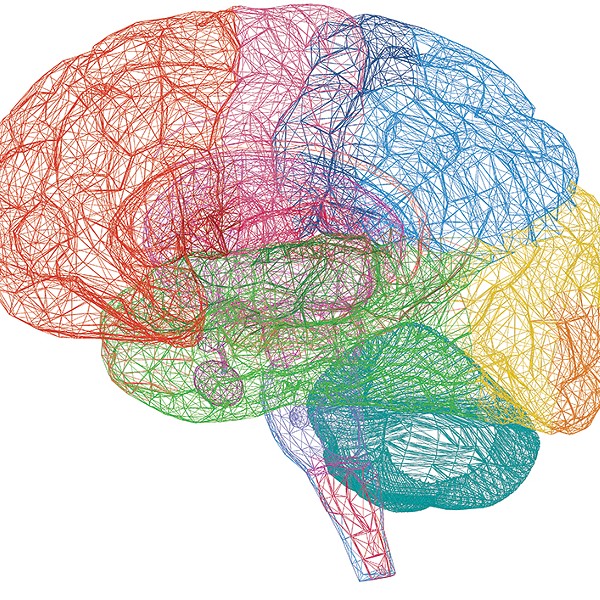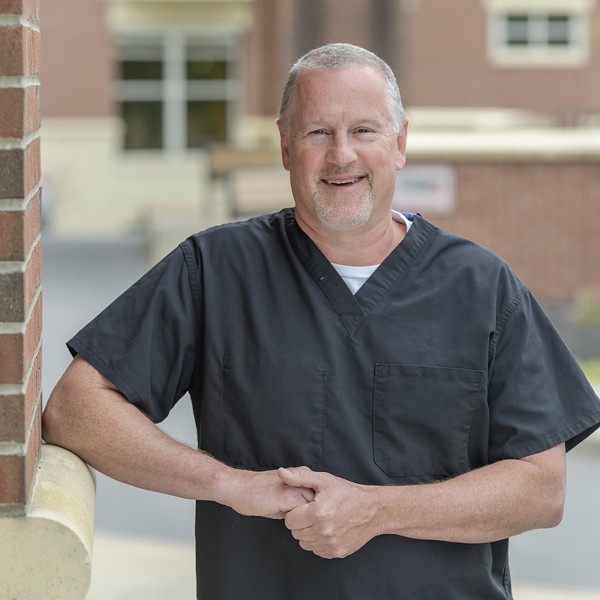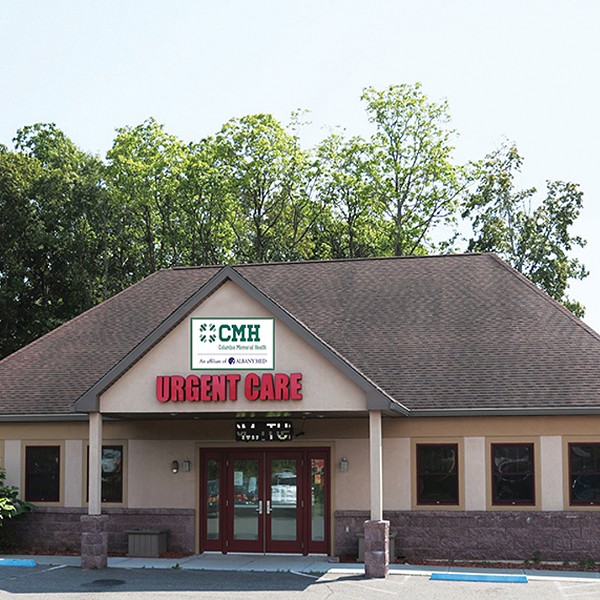
Imagine that it's two o'clock in the afternoon on a Sunday and someone, let's call him Steve, is feeling agitated. He's beyond agitated—he is having another panic attack, or perhaps he is jonesing toward a relapse with alcohol or opiates. Steve is not used to asking for help, but he's feeling desperate. The idea of checking into a psychiatric emergency room at a local hospital only spooks him more. Luckily, he has another choice: an urgent care center for mental health.
Two such facilities, based out of community centers, opened on May 1 in Middletown and Newburgh (at the Middletown Community Counseling Center and the Kaplan Family Counseling Center in Newburgh, respectively). Here, no one tags Steve with a hospital wristband. Instead of institutional cinderblock walls, homey decor surrounds him. He sees a window marked "Urgent Care," where a trained person is ready to help him. Comfort comes first, so if he is too upset to talk, he's invited first to sit in a comfortable room with couches and a TV, have a snack, and chillax for a bit.
"We're not going to greet him with, 'Fill out this form. Give me your insurance card.' That's not what happens first here," says Patricia Tuber, acute behavior health services regional director at Access: Supports for Living, the organization that created the two urgent-care centers with grant money from the federal government. "Instead it's, 'Hey, how can we help you? Tell us what brought you here today.' We want to give people an opportunity to tell their story. Then we're able to engage them and start making a plan." A person like Steve doesn't need to know anything in advance of his visit, and he doesn't need to fork over any money. He can just show up and get help from trained staff including on-site nurses and social workers. If his issue is opioid addiction, he can opt to start treatment with suboxone right away. "We can wrap services around him to get his behavioral health needs met without having to go unnecessarily to an emergency room," adds Tuber. "It's friendlier, warmer, more engaging."
Express Route to Compassionate Care
Urgent care for mental health is a fresh concept, and we need it—urgently. According to a recent Pew Research Report, about 70 percent of US teens see anxiety and depression as major problems among their peers, and their concerns about mental health cut across gender, racial, and socio-economic lines. And it's not just young people. Midlife mortality rates are falling among all education classes in America, partly due to a rise in the number of "deaths of despair"—deaths by drugs, alcohol, and suicide—according to a 2015 study out of Princeton University.
Exacerbating these problems, and sometimes preventing people from getting the help they need, is the enormous stigma that looms over mental-health conditions and addiction struggles. (They often come hand in hand: Nearly half of people with a mental-health condition have a co-occurring substance-use disorder, according to Mental Health America.) The shame people feel about their condition will keep them isolated during times when connection and support could be life-saving. With the class divide in our country, the stigma is worse in low-income populations. Having a therapist is a middle- and upper-class luxury, but in other communities, getting help for mental-health issues doesn't carry the same cachet. To break the stigma, it's essential for people to share their own mental-health struggles so that others can replace judgement and blame with empathy and understanding.
"One example of how stigma is still very real is that people who have been released from hospitals for in-patient psychiatry visits in our area have only about a 50 percent rate of showing up to get follow-up care in an outpatient clinic," says John Bennett, director of behavioral health for Access: Supports for Living. Moreover, the hospital model doesn't work for everyone. "More and more, we're realizing that people get better when they stay in the community, with their family, and involved in life with their supports in place," adds Bennett.
The family and community piece is key—and Access's two urgent care facilities will often incorporate the family or social circle into the care process. "We're embracing a new way of working with families called Open Dialogue, which is a family communication intervention in which we try to get all the members of a family (or a social network or self-defined family) really talking with each other and really understanding whatever it is that brought in the person who's at the center of clinical concern to us," says Bennett. "Then we explore how we can help that family or social network to support the person."
Urgent care for mental health is not entirely new to the Hudson Valley—in Poughkeepsie, the Dutchess County Stabilization Center is a walk-in facility for people in crisis or distress, and it has become a valuable community resource since it opened in 2017, particularly for people with opioid use disorder. The Access centers in Newburgh and Middletown will serve a similar purpose, and what makes them unique is that they're based on a concept of care called the Living Room model. "The idea is that if you're in an agitated state and want to seek help, you don't really want to go to an institution—you want to go somewhere that feels comfortable," explains Bennett. "The one in Newburgh is in a refurbished Victorian house downtown. It's very pretty, with chrome molding and a fireplace (not working, but we'll figure out how to maybe put an electric fireplace in there). We're working on comfort first, connection after, and, if somebody is starting to feel comfortable, then engagement in the services."
Recovery, Your Way
There is an inclusive feel to a walk-in center—and inclusivity is exactly the point at Samadhi Recovery Community Outreach Center in Kingston, a new resource geared toward helping people with addictions. "This is an open door. It's a very compassionate setting where everyone is welcome to come and find out for themselves what their recovery could be," says David McNamara, Samadhi's founder and executive director. "The primary purpose of the outreach center is for people who are in the contemplation phase. They're thinking, 'Maybe I have a problem. I lost three jobs.' They're not ready to go to rehab. They're not ready to even go to a 12-step meeting. But they're ready to just talk to people and start investigating."
McNamara is a filmmaker by trade, as well as a substance abuse counselor, and he started making a film about addiction four years ago, after his son's best friend died of a heroin overdose. While working on the film, he met experts in the field of addiction treatment such as Gabor Maté, known for his studies connecting adverse childhood experiences (ACEs) and addiction, and Valerie (Vimalasara) Mason-John, co-creator of Mindfulness-Based Addiction Recovery. "I saw that there was this great paradigm shift happening in the way we treat and heal addiction," says McNamara. "I really wanted to do something not just with film but also on the ground. That was the birth of this center."
Part of the paradigm shift is an expansion away from a one-size-fits-all model (often a 12-step program) and toward multiple avenues for healing. "Everyone's journey is different. One person's recovery might include mindfulness and meditation. Another's might have yoga or qi gong. Or it might include somatic experiencing." All of these mind-body therapies, and several more, are on offer for free at Samadhi six days a week, Monday through Saturday. But the best place to start is likely one of the two recovery meetings held each day—a refuge recovery meeting (supporting abstinence) or an eight-step recovery meeting (supporting a harm-reduction model rather than total abstinence, and based on Buddhist teachings). People with any kind of addiction can find a haven here—alcohol addiction, food addiction, sex addiction.
It's important to note that Samadhi does not bill itself as a treatment clinic. Rather, it's a peer-based support center. "The easiest person to talk to is someone who has lived experience of addiction," says McNamara. "A recovery peer advocate is someone who has that experience. They go through a certification process to become a recovery coach or a peer advocate so that they can help other people find their own recovery by presenting multiple pathways." McNamara himself has that experience—he dealt with a cocaine and alcohol addiction for over 20 years before becoming sober just over a decade ago. After spending many years trying to recover and relapsing multiple times, he turned to his longtime practice of Zen Buddhism for wisdom. He also dug deep into his own past to find the trauma behind his addiction—a forgotten experience of childhood abuse.
"The core of what we do is help people to begin to look at the underlying causes of their addiction," says McNamara. "A lot of people will say at first that they don't have any trauma and nothing happened to them. Over time, people will start to realize that there is something. Sometimes it's subtle. Your parents were both busy with their careers and they didn't have time to give you enough attention. Or your mother had postpartum depression after you were born. In my own experience of my recovery, until you address the core pain and underlying causes, [the addiction] won't ever go away. It will continue to keep spouting up in different ways."
The community outreach center is just a first step for Samadhi. Future plans include a residential in-patient recovery center, where people can stay for three to nine months, as well as a detox center. Plans are also in the works for a Recovery Cafe—a coffee shop open to the public where people in recovery can find employment in a supportive environment (several such cafes have opened across the country).
Perhaps one day soon, walk-in centers for mental health and addiction will be neighborhood fixtures in more communities. It certainly seems to be part of the current zeitgeist. "I think the model of the behavioral-health clinic where you make an appointment and show up a week or two later to see a professional—I don't know if that necessarily matches the way our society works anymore," says Bennett from Access. "We like things to be a lot more spontaneous and personalized."
"If we greet people with hope and possibility, then that can change their experience and keep doors open for what they can achieve in their lives," he adds. "And that's really what we're going for here. Keeping hope and possibility alive."
The Access: Supports for Living urgent care centers are located at the Middletown Community Counseling Center and the Kaplan Family Counseling Center in Newburgh, and are open seven days a week, 11am–7pm on weekdays and 9am–5pm on weekends. Accesssupports.org
Samadhi Recovery Community Outreach Center is located at 122 Clinton Avenue in Kingston, and is open six days a week, Monday through Saturday, 11am–9pm. Samadhiny.org

















